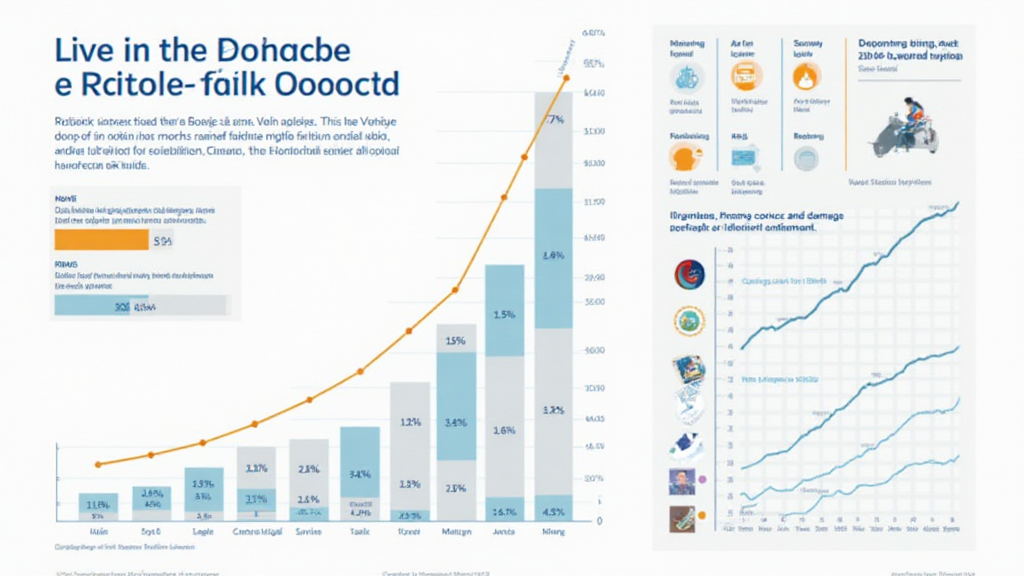Bitcoin AML Software Tools: Increase Security and Compliance
With the rapid evolution of cryptocurrency, the need for robust compliance mechanisms has never been more critical. In 2024 alone, the cryptocurrency industry suffered losses exceeding $4.1 billion due to DeFi hacks and other security breaches. As regulations tighten, a proactive approach using Bitcoin AML software tools is essential for protecting digital assets and ensuring adherence to Anti-Money Laundering (AML) regulations. This article will explore the best practices and tools in the Bitcoin AML landscape, focusing on their importance and effectiveness.
Understanding the Importance of AML in Cryptocurrency
The landscape of cryptocurrency is characterized by its inherent anonymity and decentralized nature, making it an attractive avenue for illicit activities such as money laundering and fraud. Regulatory bodies across the world have imposed strict AML standards, similar to the traditional financial sector, to mitigate risks and enhance transparency.
According to a report by Chainalysis, illegal transactions represented nearly 0.34% of all cryptocurrency transactions in 2025, highlighting the urgent need for effective AML strategies.

The Role of Bitcoin AML Software Tools
- Transaction Monitoring: Continuous oversight of transactions to identify suspicious patterns and flag anomalies.
- User Identification: Implementing Know Your Customer (KYC) procedures to verify the identities of users.
- Risk Assessment: Evaluating the risk profile of users and transactions to mitigate potential threats.
- Reporting and Documentation: Maintaining comprehensive records and filing necessary reports to comply with regulations.
Using these tools can help platforms shield themselves from regulatory scrutiny while promoting a safer trading environment.
Popular Bitcoin AML Software Tools
Various AML compliance tools cater explicitly to the needs of cryptocurrency exchanges and wallets. Let’s explore a few notable options:
1. Chainalysis
Chainalysis is a leading blockchain analysis firm specializing in AML software. It offers a suite of tools that allow exchanges to monitor transactions, assess risk levels, and comply with regulatory demands. Their comprehensive database provides insights into wallet behaviors, enabling exchanges to identify potential risks effectively.
2. Elliptic
Elliptic focuses on detecting illicit activities linked to crypto assets. Their software enables financial institutions to analyze transactions and report suspicious activities based on advanced algorithms and machine learning techniques. Elliptic’s tools are crucial for ensuring adherence to global AML regulations.
3. CipherTrace
CipherTrace provides extensive services in risk intelligence and compliance, particularly focusing on crypto business transactions. Their platform combines forensic investigations with compliance solutions, helping businesses navigate the complex world of cryptocurrency in light of regulatory demands.
Bitcoin AML Tools for the Vietnamese Market
In Vietnam, the cryptocurrency market is rapidly growing. A report from Statista indicated that the number of Vietnamese cryptocurrency users surged 218% from 2022 to 2025. As the market expands, using Bitcoin AML software tools becomes increasingly vital for compliance with local regulations.
Vietnam’s regulations, including the tiêu chuẩn an ninh blockchain, emphasize the importance of AML to secure the burgeoning cryptocurrency economy. Using tools tailored to the Vietnamese context can help local businesses mitigate risks effectively.
Best Practices for Implementing Bitcoin AML Software Tools
When integrating AML software tools, organizations must consider various factors to ensure effectiveness. Here are some best practices:
- Continuous Training: Staff must be educated on the importance of AML measures and how to use the tools effectively.
- Regular Audits: Periodic assessments of the compliance system to ensure its adequacy is crucial in the AML landscape.
- System Updates: Regularly updating the software tools to adapt to new regulatory changes and cybersecurity threats.
- Collaboration with Authorities: Establishing connections with law enforcement to facilitate compliance and enhance market integrity.
Engaging Local Experts
Consulting local experts in Vietnamese regulation and cryptocurrency can provide critical insights into the specific needs and compliance requirements of the market, ensuring robust risk management strategies.
The Future of Bitcoin AML Software Tools
As cryptocurrency continues to evolve, the tools designed to enhance security and compliance will also advance. With the increasing sophistication of financial crime, leveraging AI and machine learning will become essential in effectively monitoring and analyzing transactions.
Furthermore, transparency in blockchain technology could pave the way for new compliance solutions that significantly reduce the risks associated with digital currencies while ensuring user privacy.
Conclusion
As the landscape of cryptocurrency grows increasingly complex, the importance of Bitcoin AML software tools cannot be overstated. These tools not only facilitate compliance with regulations but also safeguard digital assets from illicit activities. By incorporating effective strategies and leveraging the best available tools, crypto platforms can ensure they remain competitive and secure.
Mycryptodictionary serves as a valuable resource for cryptocurrency knowledge and compliance solutions, helping users navigate these challenges with confidence.






